Focusing on Student Learning
Following on from above AI can analyze student data to create individualized learning plans, catering to different learning styles and paces . This allows students to learn at their own speed and receive targeted support where needed.
Personalised learning plans are becoming popular. They can analyze student data to create individualized learning plans, catering to different learning styles and paces. This allows students to learn at their own speed and receive targeted support where needed. It also highlights students who may be falling behind.
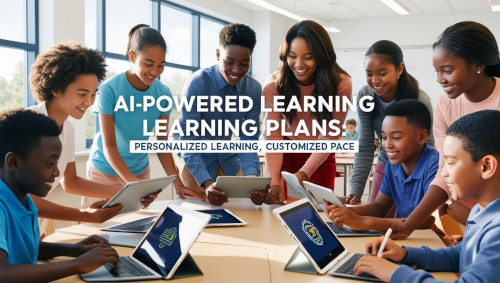
AI-powered tutoring systems are becoming increasingly popular in education, offering personalized support and guidance to students and providing tailored feedback and recommendations.
Tailored feedback and recommendations refers to the ability of AI systems to provide individualized feedback and suggestions to students based on their unique needs and learning styles. This means that instead of receiving generic feedback that applies to the entire class, each student gets specific guidance that is relevant to their strengths, weaknesses, and learning goals.
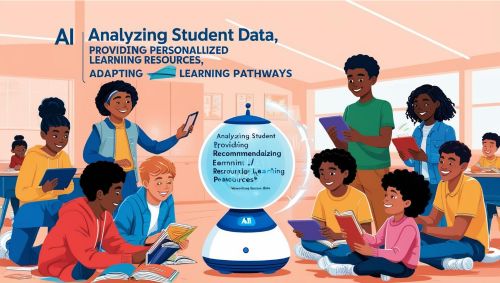
Here's how AI can deliver tailored feedback and recommendations:
- Analyzing student data: AI systems can analyze various data points, such as student performance on assessments, learning patterns, and engagement with learning materials . This analysis helps the AI understand each student's strengths and weaknesses and identify areas where they need additional support.
- Providing personalized feedback: Based on the data analysis, AI can provide specific feedback on student work, highlighting areas where they excelled and suggesting areas for improvement . This feedback can be delivered in various formats, such as written comments, audio recordings, or interactive visualizations.
- Recommending learning resources: AI can recommend relevant learning resources, such as articles, videos, or practice exercises, that are tailored to the student's needs and learning style . This helps students access the most appropriate materials to support their learning and address their individual challenges.
- Adapting learning pathways: AI can adjust the learning pathway for each student based on their progress and performance . This means that students can move through the curriculum at their own pace and focus on the areas where they need the most support.
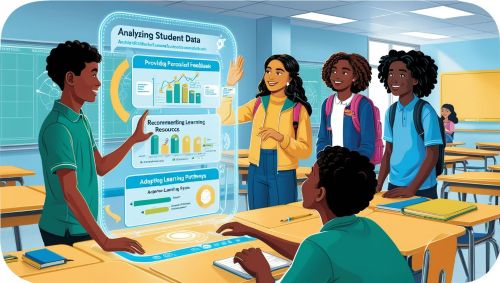
This revolutionizes personalized learning in several ways:
- Increased student engagement: Tailored feedback and recommendations make learning more relevant and engaging for students . When students receive feedback that is specific to their needs, they are more likely to feel motivated and invested in their learning.
-
Improved learning outcomes: Personalized learning leads to improved learning outcomes because students receive targeted support in the areas where they need it most . This helps them master concepts more effectively and achieve their learning goals.
- Greater autonomy: Personalized learning empowers students to take control of their learning and make decisions about their education . By providing students with the resources and support they need to succeed, AI systems help them become more independent and self-directed learners.
- Enhanced teacher-student relationships: Personalized learning allows teachers to build stronger relationships with their students by providing individualized support and guidance . This helps teachers understand each student's unique needs and learning style, fostering a more positive and productive learning environment.
- Increased efficiency: AI can automate many of the tasks associated with providing feedback and recommendations, such as grading and resource curation . This frees up teachers' time to focus on other aspects of teaching, such as providing individual support and designing engaging lessons.
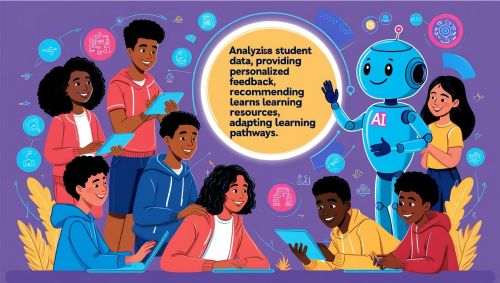
To facilitate tailored feedback, students' work could be in various formats, including:
- Digital assessments: AI can easily analyze digital assessments, such as online quizzes, tests, and interactive exercises . This allows for immediate feedback and personalized recommendations.
- Written assignments: AI can analyze written assignments, such as essays and reports, to provide feedback on grammar, style, and content .
- Coding projects: AI can assess coding projects, providing feedback on code quality, efficiency, and functionality.
- Multimedia presentations: AI can analyze multimedia presentations, such as videos and slideshows, to provide feedback on content, design, and delivery
By leveraging AI's ability to analyze student work and provide tailored feedback and recommendations, educators can create more personalized and effective learning experiences for all students.
Go to top
AI-powered learning platforms in NZ
AI-powered learning platforms are becoming increasingly popular in New Zealand schools, offering a range of features to support teaching and learning. These platforms use artificial intelligence to provide personalized learning experiences, automate administrative tasks, and analyze student data to inform instruction. Below we look at some examples of AI-powered learning platforms being used in New Zealand schools.
1. TeachMateAI

In today's fast-paced educational landscape, teachers are constantly seeking tools to streamline their workload and personalize learning for their students. TeachMateAI emerges as a promising solution, leveraging the power of artificial intelligence to assist educators in various aspects of their roles, from lesson planning to personalized feedback. This article explores the key features of TeachMateAI and how it can empower teachers to create a more effective and engaging learning environment.
Streamlining Lesson Preparation and Defining Learning Objectives
TeachMateAI simplifies the often time-consuming process of lesson planning. By inputting basic information about the topic, learning level, and desired outcomes, teachers can leverage the platform's AI to generate comprehensive lesson plans. This includes suggested activities, resources, and even differentiation strategies to cater to diverse learners. Furthermore, TeachMateAI assists in clearly defining learning objectives, ensuring that lessons are focused and aligned with curriculum standards. This feature frees up valuable time for teachers to focus on what matters most: interacting with and supporting their students.
Crafting Diverse Assessment Materials
Assessment is a crucial component of the learning process, providing insights into student understanding and guiding future instruction. TeachMateAI offers a versatile suite of tools for creating a range of assessment materials. From quick checks for understanding using multiple-choice questions and fill-in-the-gaps exercises to more formal assignments that assess deeper learning, the platform caters to various assessment needs. This flexibility allows teachers to evaluate student progress in a variety of ways, gaining a holistic view of their learning.
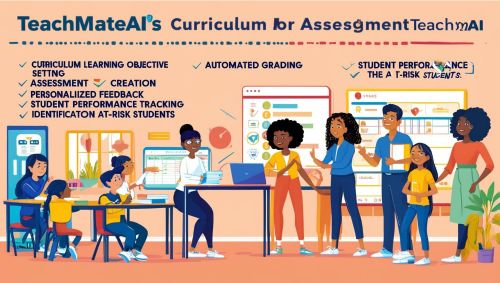
Automated Grading, Personalized Feedback, and Recommendations
One of the most significant benefits of TeachMateAI is its ability to automate the grading of assignments, particularly those with objective answers. This feature dramatically reduces the administrative burden on teachers, allowing them to dedicate more time to providing personalized feedback. Beyond simply assigning grades, TeachMateAI offers suggestions for constructive feedback, helping students understand their strengths and weaknesses. Furthermore, the platform can recommend targeted resources and activities for improvement, empowering students to take ownership of their learning journey.
Identifying Students at risk and Early Intervention
TeachMateAI's data aggregation capabilities provide valuable insights into student performance. By tracking individual student scores across various assessments, the platform can identify students who may be falling behind. This early detection allows teachers to intervene proactively, providing additional support and resources to help students get back on track. This feature is crucial for ensuring that no student is left behind and that all students have the opportunity to succeed.
Personalized Lesson Plans
Recognizing that each student learns at their own pace and in their own way, TeachMateAI facilitates the creation of personalized lesson plans. By considering individual student data, including their strengths, weaknesses, and learning styles, the platform can generate tailored lesson plans that address specific needs. This personalized approach to learning is essential for maximizing student engagement and promoting academic growth.
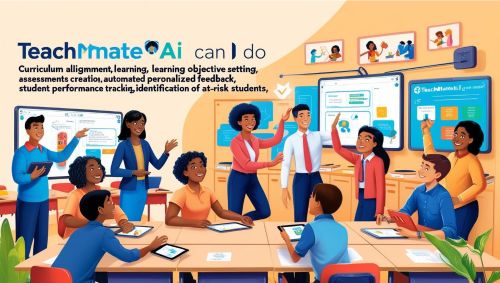
Conclusion
TeachMateAI represents a significant advancement in educational technology, offering a powerful suite of tools to support teachers in their multifaceted roles. By automating time-consuming tasks, providing personalized feedback, and facilitating data-driven decision-making, TeachMateAI empowers teachers to create a more effective and engaging learning environment for all students. As AI technology continues to evolve, platforms like TeachMateAI hold immense potential to transform the future of education.
2. Education Perfect: A Comprehensive Learning Platform for Schools
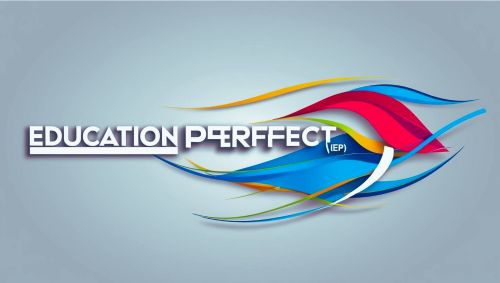 In today's dynamic educational landscape, schools are increasingly turning to digital platforms to enhance teaching and learning. Education Perfect (EP) stands out as a comprehensive solution designed to support educators and students alike. This article explores the key features of Education Perfect and how it empowers schools to create engaging and effective learning experiences.
In today's dynamic educational landscape, schools are increasingly turning to digital platforms to enhance teaching and learning. Education Perfect (EP) stands out as a comprehensive solution designed to support educators and students alike. This article explores the key features of Education Perfect and how it empowers schools to create engaging and effective learning experiences.
Curriculum-Aligned Content and Learning Objectives
Education Perfect provides a vast library of curriculum-aligned content across a wide range of subjects. This pre-built content covers various topics and learning objectives, saving teachers valuable time in preparing lesson materials. The platform's structure makes it easy for teachers to find relevant resources and align them with specific learning objectives. While teachers can customize and adapt existing materials, the extensive library provides a solid foundation for instruction.
>
Versatile Assessment Creation:
Assessment plays a vital role in gauging student understanding and informing instructional decisions. Education Perfect offers a diverse range of assessment tools, allowing teachers to create various types of assessments. From quick checks for understanding using multiple-choice questions and fill-in-the-gaps exercises to more formal assignments that assess deeper learning, the platform caters to diverse assessment needs. Teachers can easily create custom assessments or utilize pre-made assessments aligned with the curriculum.
>
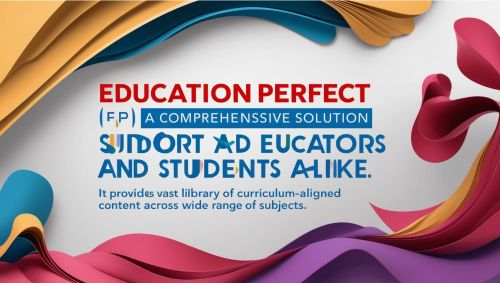
Automated Grading and Feedback:
One of the significant advantages of Education Perfect is its automated grading capabilities, particularly for objective assessments like multiple-choice and fill-in-the-gaps questions. This feature significantly reduces teachers' workload, freeing up time for other crucial tasks. While automated grading handles the objective aspects, teachers can still provide personalized feedback on more complex assignments. The platform also offers reporting tools that provide insights into student performance, helping teachers identify areas where students might be struggling.
Performance Tracking and Early Intervention:
Education Perfect's reporting features provide valuable data on student progress. The platform aggregates scores for individual students, allowing teachers to track their performance across various assessments. This data can be used to identify students who may be falling behind and require additional support. Early intervention is crucial for ensuring student success, and Education Perfect's data-driven insights empower teachers to provide timely assistance.
Personalized Learning Pathways (Indirectly):
While Education Perfect doesn't generate fully personalized lesson plans for each student, it offers features that support personalized learning pathways:
- Adaptive Learning: The platform adjusts the difficulty of questions based on student performance, providing a personalized challenge.
- Targeted Content: Teachers can assign specific content and activities to individual students or groups based on their needs.
- Self-Paced Learning: Students can work through the content at their own pace, allowing them to focus on areas where they need more support.
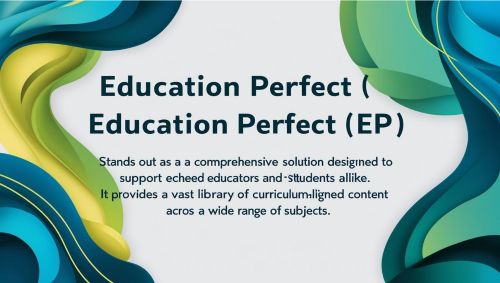
While not a fully automated personalized lesson plan generator, these features allow teachers to cater to individual learning needs within the platform's structure. Teachers can use the data provided by EP to then inform their own personalized lesson planning for individual students.
Conclusion
Education Perfect offers a comprehensive suite of tools for schools looking to integrate technology into their teaching and learning practices. From its vast library of curriculum-aligned content to its versatile assessment tools and data-driven insights, Education Perfect empowers teachers to create engaging learning experiences and support student success. While fully personalized lesson plans are not a direct feature, the platform's adaptive learning and data reporting facilitate personalized learning pathways and inform teacher-created personalized instruction. As educational technology continues to evolve, platforms like Education Perfect play a vital role in shaping the future of education.
3. Edsby
Edsby has emerged as a comprehensive learning management system (LMS) designed to connect teachers, students, and parents in a unified digital environment. This article explores the key features of Edsby and how it supports modern teaching and learning practices.
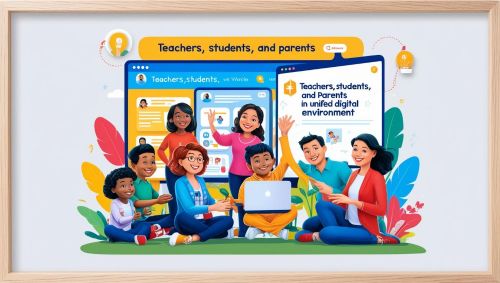
Organizing Learning with Content and Objectives
Edsby provides a centralized platform for teachers to organize and share learning materials. Teachers can upload files, create assignments, embed videos, and link to external resources, all within a structured class environment. While Edsby doesn't automatically generate lesson plans, it provides the framework to organize content by topic, unit, or learning objective. Teachers can clearly outline learning goals within the platform, ensuring transparency and focus for students. The system facilitates a blended learning approach, allowing for the integration of digital resources with traditional classroom instruction.
Creating Varied Assessments
Edsby supports a variety of assessment types, including quizzes, tests, and assignments. Teachers can create assessments with different question formats, such as multiple-choice, short answer, and essay questions. The platform offers tools for setting time limits, randomizing questions, and providing feedback to students. While Edsby doesn't automatically generate assessments, it streamlines the process of creating and administering varied assessments. Teachers can use the platform to monitor student progress and identify areas for improvement.
Grading Assignments and Providing Feedback
Edsby's gradebook allows teachers to grade assignments, provide feedback, and communicate with students about their performance. Teachers can enter scores, comments, and rubrics directly into the platform, making it easy to track student progress and provide timely feedback. Edsby's grading features help teachers maintain accurate records of student performance and communicate expectations clearly. The platform also supports peer review and group assignments, fostering collaboration and peer learning.
Tracking Student Progress
Edsby's gradebook provides a comprehensive view of student performance. Teachers can track individual student scores across various assignments and assessments. The platform's reporting features allow for the aggregation of data, making it easier to identify students who may be struggling or falling behind. This data-driven approach allows teachers to intervene early and provide targeted support to those who need it most.
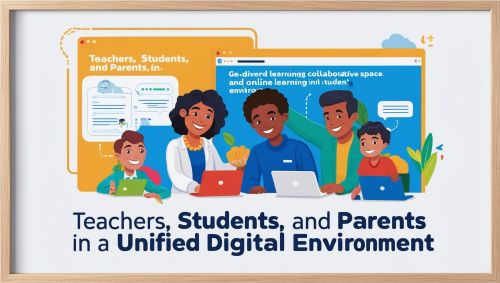
Personalized Learning Pathways (Indirectly):
Edsby doesn't automatically generate personalized lesson plans for each student. However, it provides the tools and flexibility for teachers to personalize learning in several ways:
- Differentiated Instruction: Teachers can create different versions of assignments or provide different resources to cater to individual student needs.
- Individualized Feedback: Edsby's feedback tools allow for personalized communication with each student, addressing their specific strengths and weaknesses.
- Flexible Pacing: Students can often work through assignments at their own pace, allowing for self-directed learning.
While not a fully automated personalized learning platform, Edsby facilitates personalized learning through its flexible structure and communication tools. Teachers can leverage the platform's features to create individualized learning experiences for their students.

Conclusion
Edsby provides a robust and connected learning environment for schools. Its features support teachers in organizing their classes, creating assessments, providing feedback, and tracking student progress. While it doesn't offer fully automated personalized lesson planning or AI-powered recommendations, Edsby provides the framework and tools for teachers to personalize learning and support individual student needs. As a comprehensive LMS, Edsby empowers schools to create a collaborative and engaging learning experience for all stakeholders.
2.
Go to top

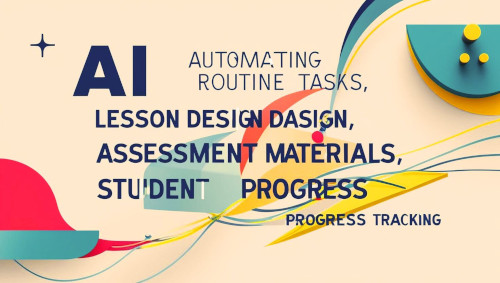




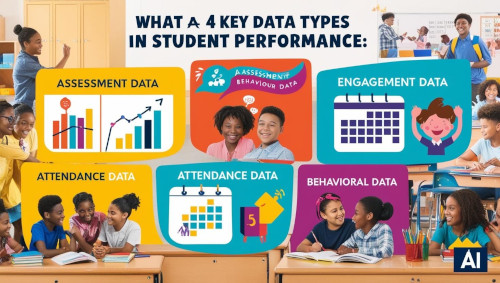
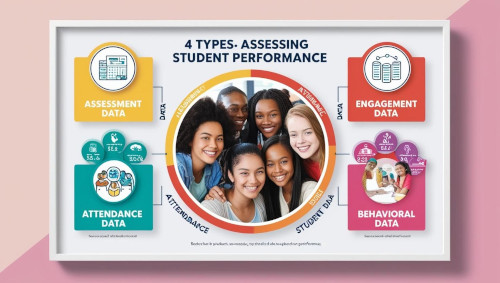
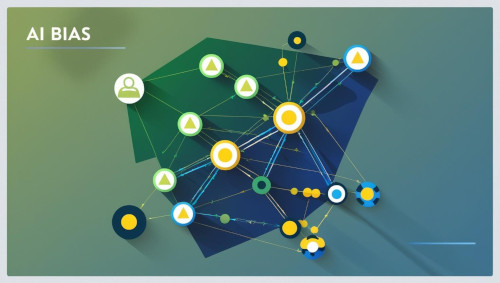
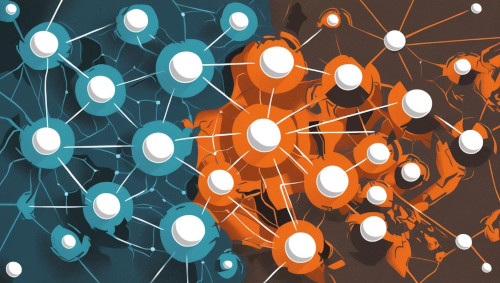
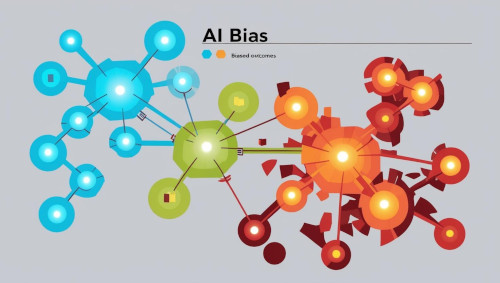






 In today's dynamic educational landscape, schools are increasingly turning to digital platforms to enhance teaching and learning. Education Perfect (EP) stands out as a comprehensive solution designed to support educators and students alike. This article explores the key features of Education Perfect and how it empowers schools to create engaging and effective learning experiences.
In today's dynamic educational landscape, schools are increasingly turning to digital platforms to enhance teaching and learning. Education Perfect (EP) stands out as a comprehensive solution designed to support educators and students alike. This article explores the key features of Education Perfect and how it empowers schools to create engaging and effective learning experiences.



